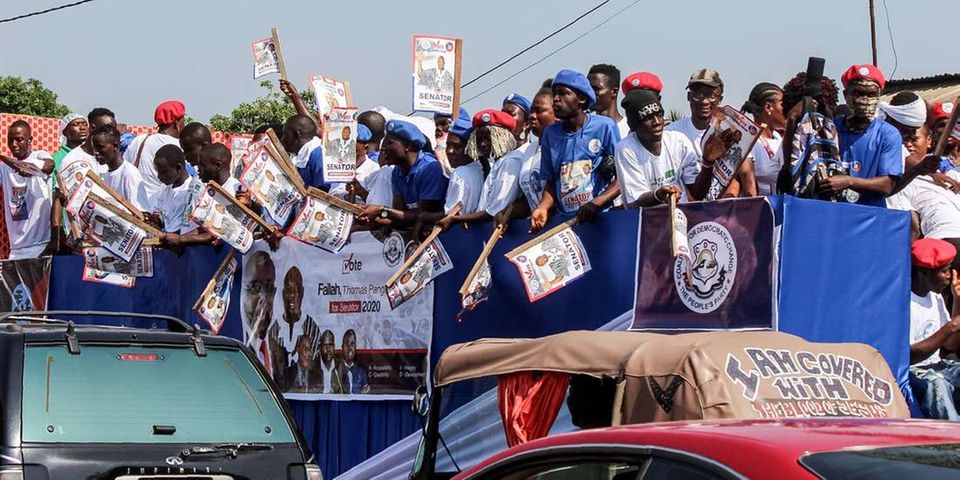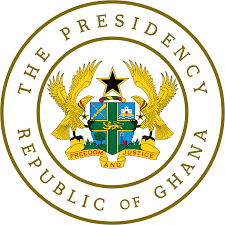Liberia: Governance Commission Acting Boss Launches Monrovia City Dialogue, Urges Bold Leadership Reforms

Monrovia — The Acting Chairman of the Governance Commission (GC), Alaric K. Tokpa, has opened a two-day policy dialogue with a stark reminder that the future of Liberia’s capital depends on bold reforms in leadership, inter-agency coordination and sustainable financing.
Speaking under the theme: “Improving Monrovia City Administration Through Effective Leadership, Proper Coordination, and Resource Mobilization,” Tokpa framed the gathering as a “deliberate and strategic intervention” to chart the city’s governance future, not a ceremonial talk shop.
“The question before us is not whether change is needed, but how we will shape that change to reflect the values of inclusion, accountability, and sustainability,” Tokpa declared.
The forum comes at a time when Monrovia’s growth–demographically, spatially and institutionally–is stretching the city beyond its traditional boundaries, creating new opportunities but also deepening governance challenges.
Tokpa said the dialogue will scrutinize the legal and institutional frameworks defining Monrovia’s status in Liberia’s decentralization drive, evaluate the city’s preparedness for climate risks, assess service delivery equity, and explore innovative financing models.
He hailed the Ministry of Finance and Development Planning, stressing that the institution would “anchor our deliberations in the realities of public finance and institutional reform” and help bridge the gap between aspirations and execution.
“Effective city administration is not a luxury; it is a necessity. It determines how services are delivered, how citizens are represented, and how opportunities are distributed,” Tokpa stressed. “In a city as dynamic and diverse as Monrovia, trust must be earned daily through transparency, responsiveness, and strategic foresight.”
Tokpa underscored the Governance Commission’s commitment to inclusive dialogue, evidence-based policymaking, and accountable cooperation between institutions, framing Monrovia’s transformation as a constitutional obligation, not a political option.
Referencing President Joseph Nyumah Boakai’s call for mobilizing “all sensibilities and sensitivities” for national growth, Tokpa praised the MFDP Minister Augustin K. Ngafuan for “moving the execution of Liberia’s national development agenda in the right direction.”
The acting Chairman said Liberia must now decide whether to reaffirm Monrovia’s traditional city status or redefine it to match “changing times and new realities.”
“History now summons us to gather all our understandings, deep feelings, and emotional responses in the national interest,” he said, urging participants to produce actionable outcomes that will make Monrovia more inclusive, resilient, and responsive.
The two-day dialogue is expected to end with a set of concrete recommendations aimed at reshaping the capital’s governance framework, potentially setting the tone for broader decentralization reforms across Liberia.
In his remarks, Monrovia City Mayor, John-Charuk S. Siafa, warned that Liberia’s capital is heading toward deeper governance chaos and crippling fiscal dependency unless decisive reforms are undertaken to streamline authority, clarify mandates, and overhaul the city’s revenue systems.
Siafa said that Monrovia’s governance structure has become so fragmented that “leadership alone cannot deliver transformation” without urgent structural reforms.
“The urgency cannot be overstated,” Mayor Siafa declared. “Monrovia’s future will be determined by the choices we make now — whether we allow fragmentation and dependency to persist, or whether we commit to decisive reforms that secure strong governance, fiscal independence, and integrated service delivery.”
Siafa traced Monrovia’s legal and administrative framework back to the 1922 Act establishing the Commonwealth District and the 1973 Act creating the City Government of Monrovia, laws which empowered the Monrovia City Corporation (MCC) to manage urban services, regulate development, and pass municipal ordinances — provided these did not conflict with national laws.
But over the decades, adjacent townships such as Congo Town, West Point, New Georgia, and the Borough of New Kru Town — all reporting to the Ministry of Internal Affairs — have created jurisdictional overlaps with MCC, which reports directly to the President. This dual reporting structure, Siafa argued, has made coordination and accountability “more difficult and less effective.”
Adding to the confusion, several national agencies have taken over responsibilities once held by MCC without corresponding reforms to the city’s governing laws. The Mayor cited zoning laws passed in 1958, once enforced by municipal zoning officers, now largely under the Ministry of Public Works (MPW) — despite the Liberia Land Authority (LLA) also holding land planning functions.
“We have MPW, LLA, and other agencies all involved in land use decisions without clearly defined boundaries,” Siafa said. “This creates duplication, conflicting mandates, and reduced capacity for coherent city planning.”
He outlined five systemic weaknesses: unclear jurisdictional boundaries, fragmented governance, erosion of MCC’s original mandates, fiscal dependency on the central government, and regulatory gaps in environmental and vegetation management.
He warned that weak institutions are fueling unplanned urban sprawl, worsening infrastructure decay, expanding informal settlements, and driving away investment due to uncertain permitting and poor enforcement of building and environmental standards.
Fiscal dependency, he stressed, is particularly damaging. “With limited control over its revenue base, MCC cannot respond effectively to population growth, address infrastructure deficits, or innovate in service delivery,” the Mayor said.
Siafa’s proposed solutions which will create a permanent metropolitan coordination body involving MCC, MPW, LLA, EPA, and LRA to harmonize policies and investments.
Accordingly, reforming the MCC Act to clarify service mandates and eliminate overlaps, implementing fiscal reforms such as enforcing property tax revenue sharing, introducing service fees, and fostering public-private partnership integrating service delivery frameworks to leverage external expertise while maintaining MCC oversight and strengthening regulatory enforcement to streamline permits, enforce building codes, and attract investment.
He called for direct appeal to both the central government and Monrovia’s citizens: “By addressing these challenges with unity of purpose, political will, and a commitment to modern, inclusive urban management, we can build a Monrovia that honors its rich history while meeting the needs of a growing, 21st-century city.”
By FrontPageAfrica.



